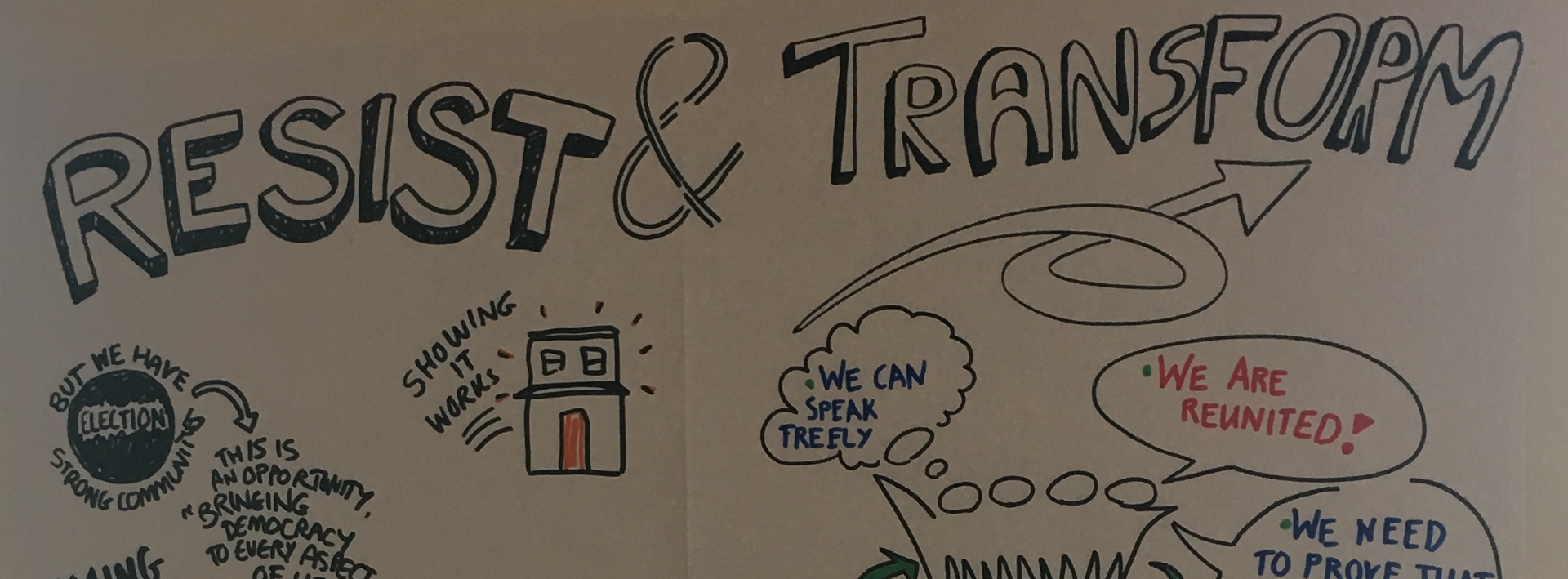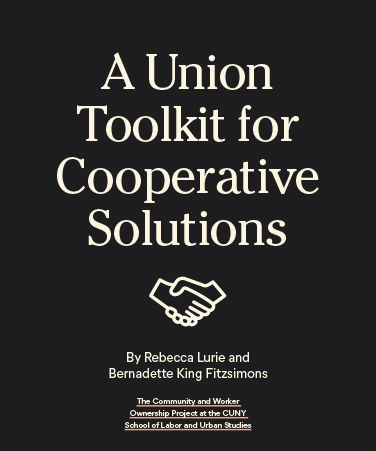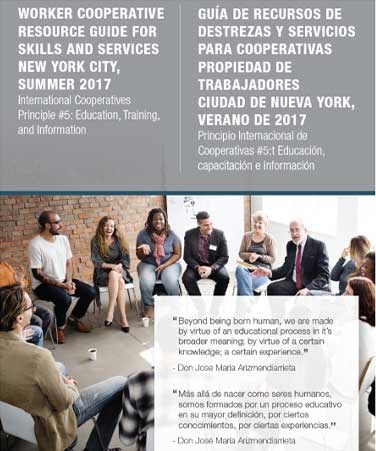CWOP designs credit courses, certificates and degree programs with scholars to expand education options for economic democracy and cooperative ownership.

Educational Resources
The Advanced (Graduate) Certificate in Workplace Democracy and Community Ownership offers students theoretical and practical skills necessary for effective democratic engagement in our economy; at work and in our communities. The program allows students to explore the details of how democratic management and cooperative ownership can function. Knowledge, skills and values for cooperation will be applied to solutions for democratic community economic development, such as worker owned co-ops, community land trusts, consumer and purchasing cooperatives, community development and financial institutions (CDFI) and housing co-ops. Using New York City and its environment as a laboratory, students will have opportunities to engage with local projects and develop leadership and facilitation skills for Economic Democracy. Learn More.
Worker Cooperative Resource Guide For Skills And Services New York City, Summer 2017/ Guía De Recursos De Destrezas Y Servicios Para Cooperativas Propiedad De Trabajadores Ciudad De Nueva York, Verano De 2017
This catalogue represents many of the resources in our city-wide collaboration, facilitated by the New York City Network of Worker Cooperatives, (NYCNOWC) and the CUNY’s School for Labor & Urban Studies. It is offered as a navigational tool for anyone interested in accessing the knowledge and supports our community can provide. We are publishing this catalogue as a beta version as a clearinghouse for training and support services in New York City. Read the guide.
The Worker Coop Resource Guide for Skills and Services, created in the summer of 2017, is a catalogue that represents many of the resources in our city-wide collaboration, facilitated by the New York City Network of Worker Cooperatives (NYCNOWC) and the CUNY’s School of Labor & Urban Studies.
Past Academic Courses
Economic Democracy: History, Theory and Practice (Fall 2020)
Taught by Michael Menser
The economic turmoil with the COVID pandemic has exposed clearly that the economy works only for the few and is unsustainable. There is rich history where workers and communities have created democratic forms of production, housing, finance, ownership, and consumption. In this class we will look at the history and current state of worker, consumer, and housing cooperatives, as well as clinics, hospitals, credit unions and public banks. We will look at the values that drive them, and debate the ways in which they succeed and fail from different ideological perspectives including capitalist, anticapitalist, socialist, feminist, anti-racist, indigenous and ecological. We will look at issues of scale for Economic Democracy from neighborhood to city, to state, to federal government with particular attention to solutions being proposed right now, like the Green New Deal as well as how automation and AI are remaking the 21st century political economy, creating possibilities for the globalization of sustainability, resilience and economic democracy.
Undergrad: Theory, Practice and Principles of Cooperative Enterprise Management (Summer 2019)
Taught by Rebecca Lurie
Learn what it takes to create effective cooperative workplaces for all. This course will investigate best practices found in business, activism, advocacy, empowerment and economic democracy. Ranging from contemporary business systems that work to putting people and planet first, to outright takeovers like in Argentina, where workers take the means of production into their own hands, we will explore local, urban and global examples of worker-ownership and control. Through readings and visits by guest speakers, this course will explore details of what goes into a cooperative business, how to consider the broader political economy in which a business exists, and what may be developed and discarded as we try to make our workplaces embody the change we want to see in the world.
Grad: Theory, Practice and Principles of Cooperative Enterprises in a Global Economy (Summer 2019)
Taught by Rebecca Lurie
Learn what it takes to create effective cooperative workplaces for all. This course will investigate best practices found in business, activism, advocacy, empowerment and economic democracy. Ranging from contemporary business systems that work to putting people and planet first, to outright takeovers like in Argentina, where workers take the means of production into their own hands, we will explore local, urban and global examples of worker-ownership and control. Through readings and visits by guest speakers, this course will explore details of what goes into a cooperative business, how to consider the broader political economy in which a business exists, and what may be developed and discarded as we try to make our workplaces embody the change we want to see in the world.
Economic Democracy and System Change (Spring 2019)
Taught by Evan Casper-Futterman and Michael Menser
Cross-listed in the Masters Programs of both Labor and Urban Studies and the CUNY Graduate Center, Earth and Environmental Science Department.
Discussions around economic democracy and economic “alternatives” often focus on either firm-level changes like cooperative ownership structures, or focus on high-level, abstract conceptual shifts from “capitalism” or “neoliberalism” to some “next system”. Where do system transformation and the transformation of daily life intersect and interact? How do we join the urgent need for institutional redesign and reconstruction to the present day political movements and structures available to us today? Read More
Economic Democracy against Economic Crisis (Fall 2017)
Taught by Evan Casper-Futterman
With Guest Lectures by Dario Azzellini
Cross-listed in the Masters Programs of both Labor and Urban Studies.
In the 1950s, labor unions claimed membership in 35% of the workforce. Today, density of labor unions outside of government employees is 6.7%. This precipitous decline in the economic and political power of working people begs the question: what will be the countervailing economic and political forces to capital and inequality in the 21st century? This course will identify and examine multiple forms of workers’ self-management and cooperative enterprises and institutions throughout history, both as a reaction to economic crisis Read More


